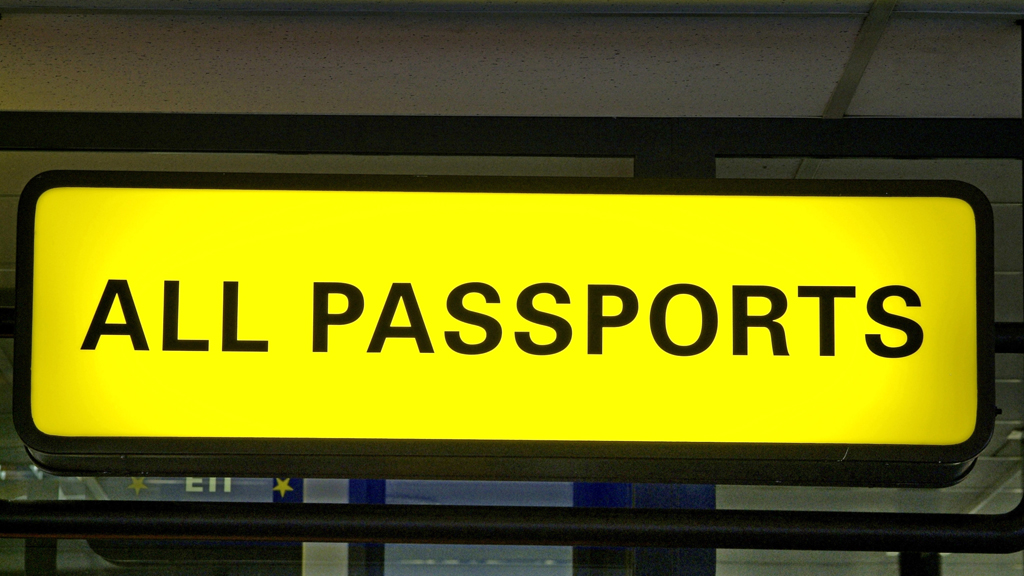Mo Farah stopped at customs? He’s not alone
 Jamal Osman
Africa Correspondent
Jamal Osman
Africa Correspondent
Olympic gold medallist Mo Farah was detained by US border guards over Christmas. Our reporter Jamal Osman, a British Somali journalist, says it’s a common experience – and tells his story.

Mo Farah has revealed that he is regularly stopped and questioned by US border agencies on suspicion of being a terrorist. He believes because of his Somali origin, he is detained every time he goes through US customs.
That experience is common amongst Somalis and it has been going on for years. Border officials in America and Europe seem to target Somalis and in my experience, amongst the biggest offenders are the UK authorities.
Despite living in the UK for 13 years, with no criminal offence (except the odd parking ticket), I get treated as a criminal.
It is understandable that British authorities have to keep the nation safe in particular when al-Shabab, a Somali Islamist group linked to al-Qaeda, has threatened to attack this country. However, harassing, blackmailing and threatening innocent members of the Somali community in an attempt to recruit spies – to stop al-Shabab – is the wrong approach.
In 2009, newspapers reported the story of a group of Somali men who claimed that MI5 gave them a choice of “work for us or we will say you are terrorists”. One of these men, Mahdi Hashi, mysteriously ended up in US custody on terrorism charges and his British citizenship was withdrawn by Home Secretary Theresa May. His family insist Mahdi is innocent. All he did was refuse to work with MI5.
Somalis and the secret service
In the last few years, I have attended numerous meetings organised by Somali community groups in which members were discussing the possibilities of challenging British spies and their targeting of the Somali community. But generally, there is a sense of hopelessness. Within the community, the secret services are regarded as untouchable and above the law. People get frightened by the mere mention of phrases like counterterrorism, security officers, secret services and spies.
To find someone who would admit publicly to have encountered MI5 or MI6 representatives is rare because it carries a stigma. Friends and family members become suspicious of one’s activity. So, for the majority, they keep quiet and suffer in silence.
I myself, have experienced the kind of tactics deployed by British officials such as detention, harassment and blackmail. Initially, I thought making official complaints would help. But after unsuccessful complaints to the Home Office and to my MP, I have come to realise that the experience is part of being a Somali. I just challenge British officials when they bother me. And as a journalist, who frequently travels to Africa, I come into contact with them more often than others.
Travelling on a British passport does not make any difference. Despite living in the UK for over 13 years, with no criminal offence (except the odd parking ticket), I get treated as a criminal. Immigration officers at Heathrow often hold me for between 15 minutes and two hours, depending on their mood.
‘A few questions’
As I approach the control desk, I hand over my passport and put my hand luggage on a seat nearby, knowing that’s where I will be for a while.
But before I sit down, officers usually ask me few questions.
“Where are you from?”
“Somalia,” I reply.
“How did you obtain the British passport?”
“Because I came here as an asylum seeker and applied for citizenship after five years.”
“Okay. Interesting. When did you came here first?”
“In May 1999.”
“Alright. So what happened when you sought asylum?”
“I had to wait a decision for a year and then I was given an indefinite leave to remain.”
“Have you ever being in trouble with the immigration?”
“No, except you guys bothering me all the time and you never explain to me why.”
“Take a seat, I will be back.”
The officer then goes into an office to “verify some details” and, of course, it is a good excuse to have an unofficial coffee break. While I wait at the “humiliation chair”, other officers behind the desk keep on eye on me, just in case I attempt to run away. It is unpleasant to watch other passengers passing through with no trouble and looking at you, probably thinking: “Here is a new immigrant.”
Imagine, when you have been on a tough journalism assignment like filming Somali pirates or al-Qaeda-type Islamist radicals, the last thing you want is men or women in uniform detaining you for as long as they wish.
And then it is the small matter of dealing with the big boys: British spies. Heathrow Airport and other border controls are their hunting grounds. It happens to me before boarding my flight or on my return to London. These guys are not interested in my asylum journey. They know exactly who I am – and their primary objective is recruiting me as an informant. At the beginning, they offer money, a nice car, a beautiful house and so on.

Unlike their colleagues at the immigration desk, who seem to follow the same procedure (familiar questions, coffee break, you can go now), the spies change their strategy. That is why they are perhaps called “intelligence” officers. They work in pairs and use the most common English names, introducing themselves by their first name only. Once all the lovely incentives spies could offer fail, they resort to emotional pressure.
Some of their favourite phrases are: “We know a lot about you. “
“We follow your movements.”
“We can deport you.”
“We can arrest you wherever you are.”
“We can say he is a terrorist.”
Hunting grounds
Last year, at Terminal 5, Gate no A10 as I was getting ready to board a bus to take me to the aircraft, I was stopped by people who only told me their first names.
“Excuse me,” said a blonde lady in her late thirties. Her colleague, a man, watched me intensely, like boxers do before they start hitting each other. The spy lady looked like Carrie Mathison, the character in Homeland.
I do not remember the exact words but the conversation went something like this.
Spying on my own community? I am not interested in contributing to the suffering of my own people.
“Could we have a chat with you?”
“What do you want to talk about?” I replied.
“Where are you travelling to?”
“You know I am heading to Nairobi and then on to Somalia.”
“Are you visiting your family?”
“You know why I am going there. I am sure you have done your research beforehand. You do not need to waste your time on silly questions. You were waiting for me, weren’t you?”
“No, we are just talking to people, randomly. Would you be interested in working with us?”
“Doing what? Spying on my own community? I am not interested in contributing to the suffering of my own people.”
“Our job is to keep us safe. That is surely your interest too.”
“I know the difference between right and wrong. I become a journalist with the hope of making a positive contribution without harming anyone. And anyway, if I was interested in the dark arts of humans, becoming a top Somali warlord may had been a better option than a second-class spy.”
“I don’t understand where you are going with this?”
“What I mean is that, regardless of their government, part of spies’ job is to torture and kill fellow human beings in the name of national security.
For me, spying on my own people is against my beliefs, principle and morals. I do not need your money. Can I just go, please?”
I wanted to make it clear to them that my attitudes towards spies is not a positive one.
Despite experiencing this, I consider myself lucky. At least, I get my frustration out, deal with the issue immediately and then go about my daily life. However, there are many Somalis who have been living in fear for years.
I have met two men who developed mental health illnesses because of the stress. And when we hear the case of Mahdi Hashi, a young man who found himself in a US prison for apparently refusing to spy on his community, then alarm bells will ring louder.
The British security services may feel recruiting informants through threats and unconventional means are the way forward but need to understand that Somalis came here to have a better life. We have seen death and destruction in our motherland. We are not here to harm our own interests. And treating innocent members of the Somali community as terrorists is not going to help anyone. It will only create anger, mistrust and will further alienate the community.